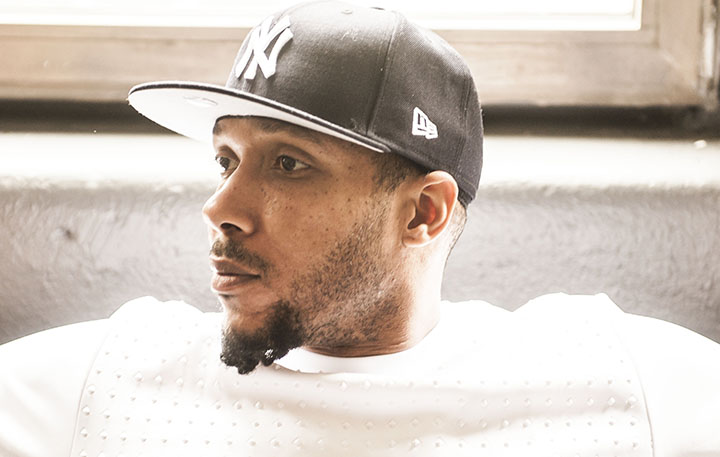Lyfe Jennings is one of those straight forward, no BS artists that consistently brings great music, without fillers. Come to think of it, there aren’t many artists with his pedigree or in his lane that are even relevant. His story isn’t foreign to his fans, but to those that might be new to the journey, there is a lot of catching up to do on Chester Jennings; the man they call Lyfe Jennings.
Lyfe Jennings officially found his voice while incarcerated for an arson charge for a stretch of over 10 years. While that amount of time will make a man crazy, Lyfe embraced it as best he could and found solace in his guitar and his music. Towards the end of his bid, the warden let him send an audition tape to Apollo Theater in New York City for a shot to appear on their world famous Amateur Night at the Apollo. His VHS tape probably didn’t stand a chance but fate and prayer got him the needle in the haystack opportunity to be seen. The decision makers at the Apollo loved his tape and made the call for him to make the show. Still time would have to be on his side as he was still incarcerated. Needless to say it all worked out. Lyfe was released from prison in December 2002 and a month later he was on the Apollo Theater stage performing along with his guitar. He went on to win five straight times.
That’s not where the rags to riches story reaches it’s climax though. While Lyfe stayed in New York City looking for his next big break he was literally homeless, sleeping on couches and wherever else seemed fit, as long as he could keep his guitar close. He performed at open mics and showcases where some nights he admits he knew he would have to win the talent competition in order to have some money to get through the next couple of days. He was still a hustler though. He recorded a four song demo shortly after being released from prison and he sold copies of that wherever he would go, including at the Apollo.
You might call him blessed, because even through the struggle, it wasn’t long before he signed his major label deal with Columbia Records. By 2004, his debut album, Lyfe 268-192. The project was well received in the midst of the neo-soul movement that was going on in R&B. His debut single, “Must Be Nice” was one of the biggest R&B records of the year and by years end he had solidified his name in the genre.
Two years later he would release his sophomore project, The Phoenix, named after his son, Phoenix. The project featured the mentally stimulating hit song, “S.E.X.” Those types of songs have become a staple of his career, but for Lyfe these are just time capsules to what was going on in his life at the time.
Jennings would release two more album, Lyfe Change and I Still Believe, by 2010, consistently dropping a project every other year. Both projects were critically acclaimed among R&B fans. Things would come to a crashing halt shortly after the release of Lyfe Change. Literally. And the repercussions of those actions would come after the release of maybe his most emotional album, I Still Believe. In late 2010, Lyfe was again sentenced to prison time, this time for a domestic situation with the mother of his children.
Shortly after serving the less than 3.5 year sentence, thanks to good behavior, Lyfe was back with a new album, the independent release Lucid in 2013. Even with the powerful single, “Boomerang,” upon it’s release, Lucid would become his lowest performing album. Despite some amazing music, the project was a disappointment.
Lyfe made some concessions and between staying on the road for numerous performances, he recorded a new album. He found a new major label home in RAL/Sony Music Entertainment for his latest album, Tree of Lyfe. In February he released his single, “Pretty Is” and on June 23rd his sixth album hits stores. Much like his music of the past, listeners can expect true to life testaments, written and produced by Jennings.
We recently caught up with Lyfe to talk about Tree of Lyfe, music and so much more. If you’ve made it this far, you’re in for a treat. Now that you’re all caught up on our favorite raspy singer, enjoy the full interview.
Parlé Magazine: Your last project was Lucid, and that was an independent release from you. Why’d you decide to change course and get back on this major label situation?
Lyfe Jennings: Well I look at it like a pedastal. I did the independent thing with Lucid and it didn’t really turn out how I wanted it to turn out. Not necessarily the music, but the impact. The thing is people spend their whole life perfecting their craft. I think I’m good at my music, my writing, but as far as the business with promotion and marketing, there’s people that spend a lifetime getting good at that. So I think it’s selfish of me trying to handle that. It just needs to be put in its proper place.
Parlé: Okay, that said, new album, Tree of Lyfe, why’d you decide to drop it now?
Lyfe Jennings: I pretty much drop a project every two years. Gives people a chance to miss you and gives me a chance to go through some more life situations.
Parlé: We’ve seen you in a few different stages of life on your music. What would you say makes this album different than your past projects?
Lyfe Jennings: I get that question all the time, the only thing that makes it different is the life experiences that I’ve went through. You can’t remake the truth, all you can do is tell it.
Parlé: Tree of Lyfe, June 23rd. What do you hope people get from the project?
Lyfe Jennings: A couple more questions answered, some new stuff to live to or at least a library of stuff that they can look to if they happen to go through those situations.
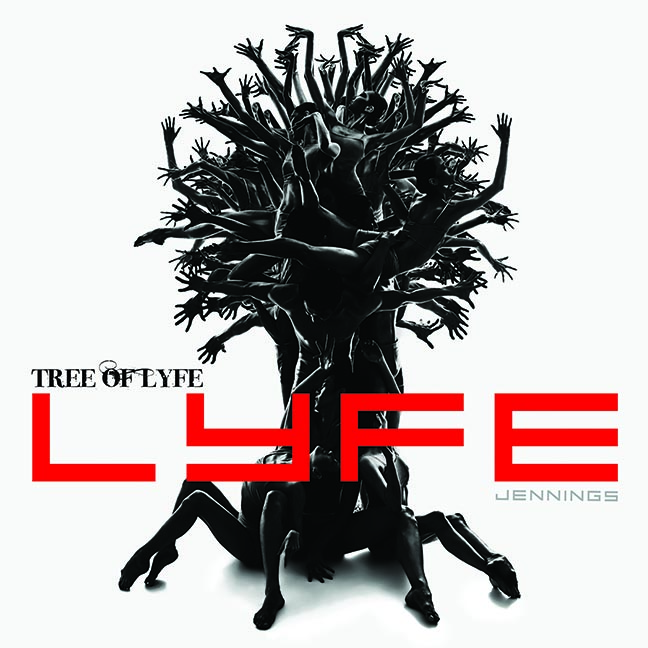
Parlé: Why the title, Tree of Lyfe? And talk to me about that album artwork, which looks amazing.
Lyfe Jennings: I think the people are the tree of life. We put so much emphasis on things and having certain situations, but I think it all starts with people and their mindsets. Hence the tree with all the people on the cover. I just saw the picture and I loved the image, we just tweaked the picture into what we needed.
Parlé: You generally create your projects on your own, writing and producing it all. Was the creative process the same this time?
Lyfe Jennings: Yeah, did most of it at the home studio. I wrote it and produced it, worked with some producers here and there but it’s mostly me.
Parlé: “Pretty Is,” that’s the new single out right now. Why’d you decide to lead with that record?
Lyfe Jennings: I thought it was the most current record that I had in terms of what’s going on right now. And then secondly it’s like stripping has become a fad and it’s cool, I ain’t mad at the hustle, but I think they’ve been given a lot of terrible advice and information. Stripping gets you money, this and that, but ain’t no pension in stripping. You not gonna be forty collecting a pension check or any of that. So make sure when you collect your bag, you put your bag in the proper position. When ladies listen to it, I hope they get some sense.
Parlé: You gear a majority of your music to the ladies, particularly your singles. Why has that been the case?
Lyfe Jennings: I try to gear my music towards women because women drive men. That new car? He ain’t trying to impress his partners. He trying to impress these females. So they kind of dictate, they our motivation for the things that we do and the things we don’t do. I wanna start at the source. I want women to understand that them little dudes over there do this for them, so make them do the right thing for your attention.
Parlé: Let’s talk about some of the other songs people should look forward to from the project.
Lyfe Jennings: What we thinking about for the second single is called, “I Love You.” It’s a great song, a love song, it’s a throwback.
Another throwback on the album, is called “Always.” This is like throwback ALL the way to the sixties. It’s dope, and it’s timeless.
Another one of my favorites is called, “We Are Not The Same.” The way these dudes be stunting now a days, they’ve got to be a seen, but we all know that the seen is created by another unscene. I’m putting my money with the unseen.
Parlé: You generally have a track where you’re paying homage to someone or an era. Do you have that record on this project?
Lyfe Jennings: Yes, I got a song called “People.” And this really happened, Marvin Gaye came to me in a dream and said he wrote a song that he never released that he wanted me to have. And I’m actually singing the song he blessed me with.
Parlé: Having been in the industry over a decade now, do you think about your place in R&B?
Lyfe Jennings: I do think about it because there is nobody like me and I don’t think there will ever be any one like me. My situation is unique, hence the music is going to be unique. People have said this before but I don’t think they really mean it. I’m the real voice of the people. I talk about stuff you would never say because you think it’s corny or stuff you would never ask questions about because you have no one to ask. I go through it and I talk about it. The situation is never wasted on me.
Parlé: State of R&B? I like to ask this question of artists in the trenches. How do you feel about the current state of things in the genre?
Lyfe Jennings: You gotta let them young guys be themselves. The little fads they go through, you gotta give them their space. But I also think the people behind them, you gotta have more responsibility, like you need that ‘nothing music’ where ‘you just want to waste time, just want to have a good time, I don’t want to think’ music. But we also need that, ‘I need to sit my ass on this couch and think about where my life is going’ music. But I think that radio and whoever the powers that be is looking for a quick fix. But you know, stuff that got a quick fix ain’t really broken. Your life, your self-esteem might take a little more fixing, there’s nothing quick about that.
Parlé: For those that might have never seen you perform they are missing out. I’ve seen you perform solo at spots like The Apollo and on stages with several R&B legends, and every time I can’t help but think your show is just crafted unlike anything I’ve seen before. What type of impact are you trying to leave on that stage when you perform?
Lyfe Jennings: Man I’m trying to have people be able to take something home, other than some pictures. My show is a whole experience and my show is different, people don’t just be screaming because they seeing their favorite artist, people be screaming because they seeing their favorite question get answered. It’s like an epiphany. It’s a moment of silence, but live.
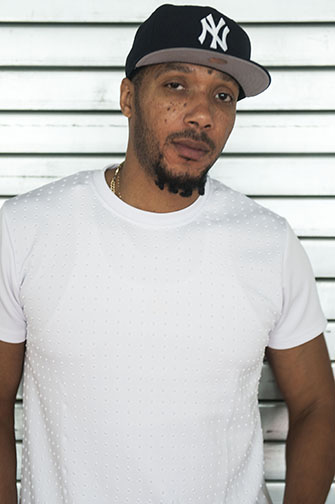
Parlé: What’s the favorite moment of your career thus far?
Lyfe Jennings: I can’t say I have a favorite moment, I have a lot of little moments, but I never won any awards, I’ve never been honored like a legend or none of that stuff so I guess the favorite part for me is the people. I always get, “this changed my life,” “this changed the status of my marriage,” “this got me back to church” or “this gave me new understandings.” THAT’s my favorite part.
Parlé: Speaking on that, why do you feel like you don’t get those accolades from the powers that be, even though you obviously get it from the fans?
Lyfe Jennings: I don’t think I’m a mainstream cat. I don’t do the stuff that the mainstream cats do. In music it’s really a Pop world, which is really popular music, that crosses boundaries of a lot more people. I’m really more of an urban artist, to where it’s a particular set of circumstances that will lead you to better understand a Lyfe Jennings. But I think as time goes on—my show audience didn’t used to be very diverse, now it’s probably half diverse, so people are recognizing it’s just going to take some time.
Parlé: I know you had the Jesus Swings thing a few years ago, doing the artist development thing. Any more of that coming from you?
Lyfe Jennings: Naw, I’ma leave that to the pros. I’m an artist, trying to develop another artist only thing you can do is give them advice, but whether they take it or not is on them. I’m just not on that right now.
Parlé: What advice do you have for artists trying to come up in the game and be in the position your in?
Lyfe Jennings: I think it’s a different market for artists, so I don’t think that they’ll be able to get the same accolades that a Lyfe Jennings would have had and I can’t really tell them, how to really work this technology stuff because I barely know myself. But I think musically if you say something timeless, it’s going to be timeless. And if you do something temporary, you gonna get temporary results. And if that’s what you want, cool. But if you want more, you gotta dig deep, give more.
Parlé: Final question, what do you want the Lyfe Jennings’ legacy to be when your time making this music is done?
Lyfe Jennings: That he’s still alive (laughs). Through the music we can live forever, physically this is gonna be over with 70, 80 years, maybe a little more, but that music—you know Michael Jackson, it trips me out that my kids know all the words to a Michael Jackson song, the dances, all the moves, man. Man they like 5, 6 decades removed from a Michael Jackson, but through this music, you live forever.
Images by Reggo Wilson for Parlé Magazine
Readers Might Also Like:
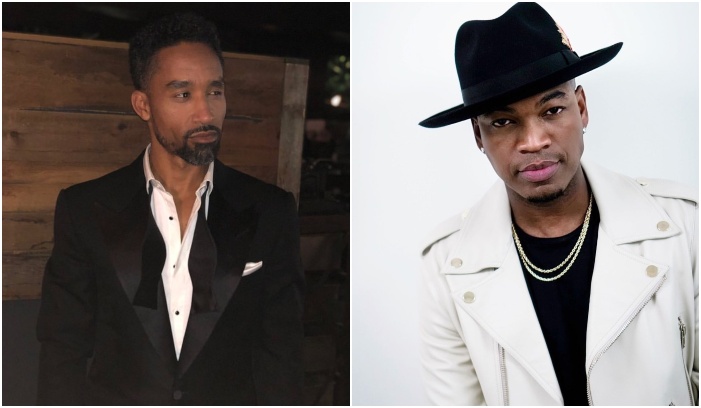 Round By Round Break Down of The Ne-Yo vs. Johnta Austin Battle on Instagram
Round By Round Break Down of The Ne-Yo vs. Johnta Austin Battle on Instagram
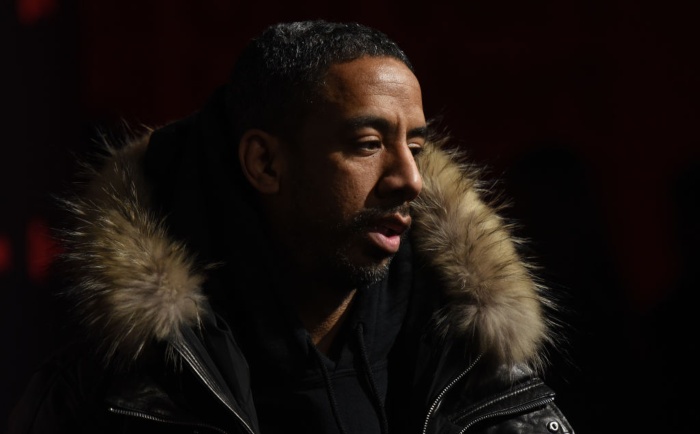 Ryan Leslie Sacrificed A Lot To Settle His Lengthy Legal Battle, But He’s Doing Alright
Ryan Leslie Sacrificed A Lot To Settle His Lengthy Legal Battle, But He’s Doing Alright
 R&B Singers You Should Be Paying Attention To
R&B Singers You Should Be Paying Attention To
 [INTERVIEW] A Conversation with a Legend – Keith Sweat Reflects On 30+ Years In Music
[INTERVIEW] A Conversation with a Legend – Keith Sweat Reflects On 30+ Years In Music

